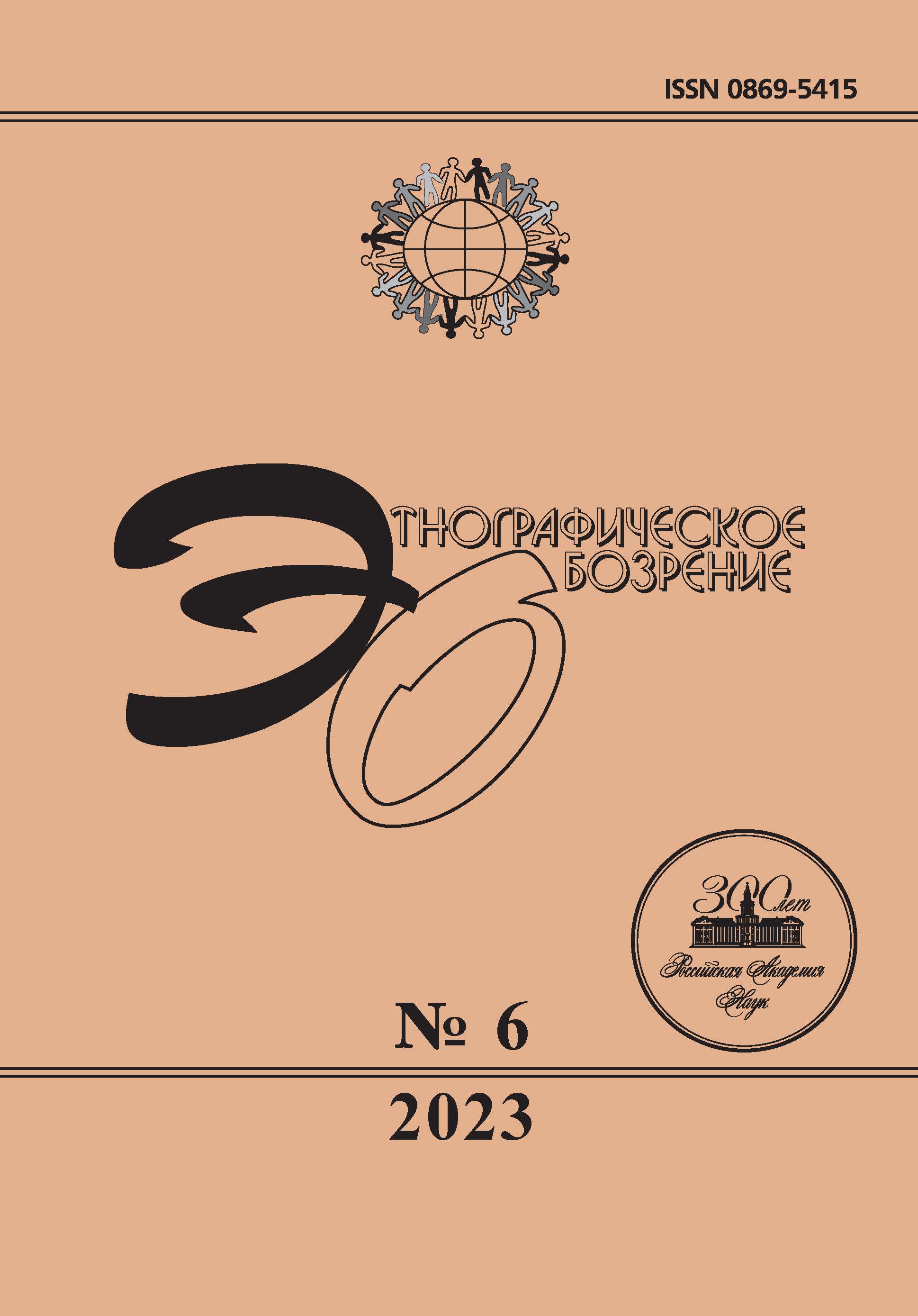Photo albums: deconstructing narratives of the self, migration, and movable memories
- Авторлар: Shahrokhi S.1
-
Мекемелер:
- Butler University
- Шығарылым: № 6 (2023)
- Беттер: 12-25
- Бөлім: Articles
- URL: https://cijournal.ru/0869-5415/article/view/672151
- DOI: https://doi.org/10.31857/S0869541523060027
- EDN: https://elibrary.ru/MPTBLF
- ID: 672151
Дәйексөз келтіру
Аннотация
Photo albums, as personal and cultural material objects, are intertwined with ideas about identity and memory. At the same time, the importance of memory in how we shape and make sense of our place in the world that is enhanced through evocative objects such as personal photographic archives (ranging from traditional family albums, to selfies on mobile phones, and beyond) becomes more pronounced in the context of the Anthropocene era in which diverse and unequal global movability (e.g., displacement, border crossing, and migration) has become a defining feature of who we are. Connecting between anthropological studies of border-crossing and migration art, this project explores how in the absence of a photo album, alternative modes of visual archives tell the migrant stories of affective connections to family homeland the past and the present Focusing on specific examples from the burgeoning body of alternative visual artwork by contemporary migration artists in Europe and the US this paper examines how identity and otherness are entangled in an ongoing process of becoming and unraveling as sociocultural norms. Beginning with Appadurai’s observations on how migration of objects precipitates the experience of border crossing this paper looks at how migration art activism empowers modes of resistance to normative exclusionary discourses and current anti-migration practices.
Негізгі сөздер
Әдебиет тізімі
- Adnan, E. 2020. Shifting the Silence. New York: Nightboat Books.
- Agier, M. 2011. Managing the Undesirables: Refugee Camps and Humanitarian Government. London: Polity Press.
- Agier, M. 2016. Borderlands: Towards an Anthropology of the Cosmopolitan Condition. London: Polity Press.
- Ahmed, S. 2000. Strange Encounters: Embodied Others in Post-Coloniality. London: Routledge.
- Ahmed, S. 2014. The Cultural Politics of Emotion. Edinburgh: Edinburgh University Press.
- Asad, T. 1973. Anthropology and the Colonial Encounter. London: Rowan & Littlefield.
- Barger, S., and W. White. 2000. The Daguerreotype: Nineteenth-Century Technology and Modern Science. Baltimore: Johns Hopkins University Press.
- Barthes, R. (1981) 2000. Camera Lucida: Reflections on Photography. New York: Hill and Wang.
- Boas, F. 1966. Kwakiutl Ethnography. Chicago: University of Chicago Press.
- Bourdieu, P. 1977. Outline of a Theory of Practice. Cambridge: Cambridge University Press.
- Butler, J. 2004. Undoing Gender. London: Routledge.
- Clifford, J. (1986) 2010.Introduction: Partial Truths. In Writing Culture: The Poetics and Politics of Ethnography, edited by J. Clifford, and G. Marcus, 1-19. Berkeley: University of California Press.
- de Genova, N. 2002. Migrant Illegality and Deportability in Everyday Life. Annual Review of Anthropology 31: 419-447.
- De Leon, J. 2015. The Land of Open Graves: Living and dying on the Migrant Trail. Berkeley: University of California Press.
- Erkonan, Ş. 2016. Photography and the Construction of Family and Memory. In Politics, Civil Society, and Participation: Media and Communications in a Transforming Environment, by L. Kramp, et al., 257-272. Bremen: Lumiere.
- Erll, A. 2011. Locating Family in Cultural Memory Studies. Journal of Comparative Family Studies 42 (3): 303-318.
- Fabian, J. 1992. Time and the Work of Anthropology: Critical Essays 1971-1981. London: Routledge.
- Glissant, E. 1997. The Poetics of Relation. Ann Arbor: University of Michigan Press.
- Haraway, D. 1988. Situated Knowledges: The Science Question in Feminism and the Privilege of Partial Perspective. Feminist Studies 14 (3): 575-599.
- hooks, b. 2001. Salvation: Black People and Love. New York: Harper Perennial.
- Khosravi, S. 2010. Illegal Traveller: An Auto-Ethnography of Borders. London: Palgrave MacMillan.
- McGrane, B. 1989. Beyond Anthropology: Society and the Other. New York: Columbia University Press.
- Nader, L. 1997. Controlling Processes: Tracing the Dynamic Components of Power. Current Anthropology 38 (5): 711-723.
- Rankine, C. 2014. Citizen: An American Lyric. Minneapolis: Graywolf Press.
- Rosaldo, R. 2003. Cultural Citizenship in Island Southeast Asia. Berkeley: University of California Press.
- Said, E. 1978. Orientalism. New York: Pantheon Books.
- Scchiochet, L. 2016. On the Brink of a State of Exception? Austria, Europe, and the Refugee Crisis. Critique and Humanism 46 (2): 211-248.
- Shahrokhi, S. 2018. Life Jackets on Shore: Anthropology, Refugees, and the Politics of Belonging in Europe. Anthropology of the Contemporary Middle East and Central Eurasia 4 (2): 11-33.
- Scott, J.W. 2007. The Politics of the Veil. Princeton: Princeton University Press.
- Trouillot, M.-R. 1999. Anthropology and the Savage Slot: The Poetics and Politics of Otherness. In Recapturing Anthropology: Working in the Present, edited by R.G. Fox, 17-45. Santa Fe: School of American Research Press.
- Turkle, S. 2007. Evocative Objects: Things We Think With. Cambridge: MIT Press.
Қосымша файлдар









